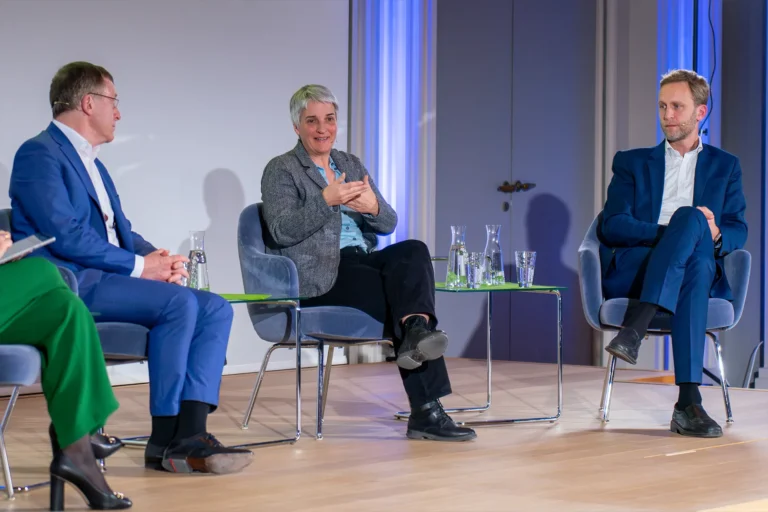In his opening speech, Academy President Prof. Markus Schwaiger emphasized the critical importance of infrastructure for the further development of medical research and practice using AI. The centralization of patient data, it was argued, could offer immense benefits to doctors and researchers, but data protection must remain a valuable asset – a balance that the EU seeks to respect in its directives.
Another key topic of the conference was the Ethics Council ‘s opinion on “Man and Machine”, which stated in a comprehensive 400-page analysis that AI systems cannot assume human responsibility. Prof. Alena Buyx, member of the Bavarian AI Council and Chair of the German Ethics Council, made it clear that human intuition and the systemic knowledge of healthcare providers should always take precedence over the results of AI. AI should not replace their work, but complement it.
Use of AI in medical practice
The practical applications of AI in medicine, such as imaging, therapy and protein folding, and the challenges posed by insufficient training data and the risk of “automation bias” were also discussed. The example of leukaemia research was particularly highlighted by Prof. Torsten Haferlach, founder of the MLL Munich Leukaemia Laboratory, who showed how AI can revolutionize diagnostics and improve treatment quality through more precise classification and shorter analysis times.
Prof. Julia Schnabel from Helmholtz Munich and professor at TUM showed how overworked doctors can make mistakes and that the use of AI as a second opinion can help to alleviate high workloads. It is in favor of thorough regulation of AI as a medical device, as enshrined in the European AI Act.
Security of patient data
The last speaker of the evening, Prof. Björn Eskofier from FAU Erlangen-Nuremberg, called for a personal health data space in which every person owns their medical data from birth. An important appeal at the conference was the call for data solidarity in order to drive research forward and enable the development of more effective treatment methods. The experts emphasized that despite the great progress that AI has already made in medicine, the human factor remains indispensable, both in research and in clinical practice.
The event concluded with a lively discussion and a call for further collaboration between the disciplines in order to fully exploit the potential of AI in medicine while maintaining ethical standards and humanity in patient care.





